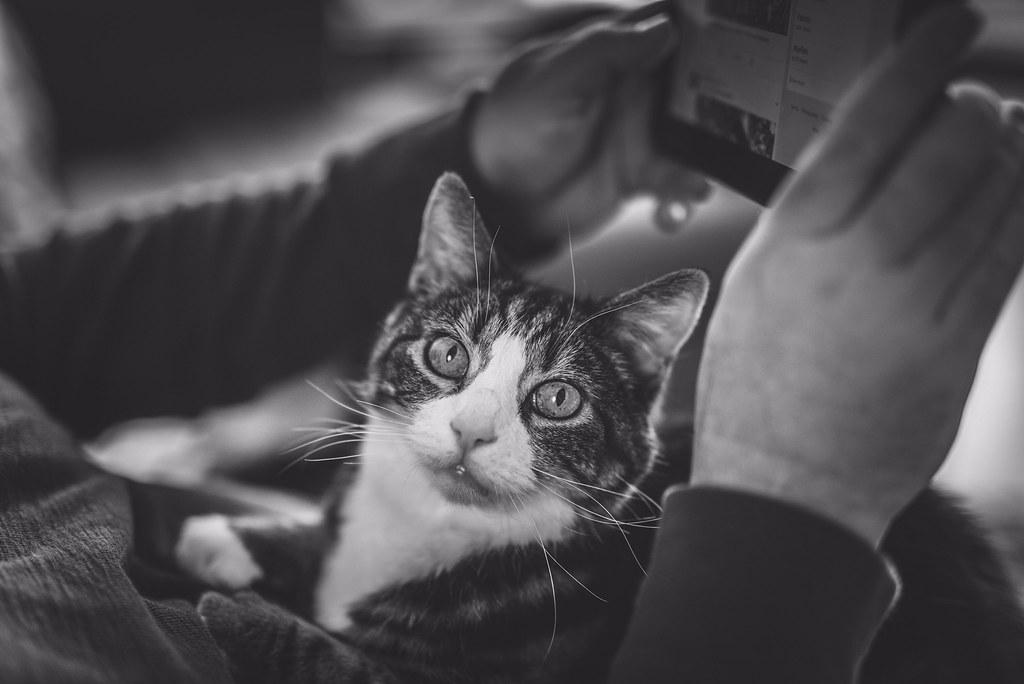In the twilight years of our pets’ lives, their once keen senses may start to dim, leading to a world that feels a little more muffled and shadowed. Yet, their hearts beat just as strongly, filled with the same boundless love and unwavering loyalty. As pet parents, it’s our turn to return the favor, to become their guiding lights and soothing voices. In this article, we will explore the tender art of caring for senior pets facing vision and hearing loss, transforming these golden years into a journey of comfort, trust, and unspoken bonds. Through gentle adaptations and heartfelt attentiveness, we can ensure that our cherished companions continue to feel the warmth of our love, even as the world around them changes. So, let’s embark on this path together, illuminating the way with compassion and understanding.
Creating a Safe and Comfortable Home Environment
Ensuring your senior pet feels safe and comfortable in their home is paramount, especially when they experience vision and hearing loss. Start by creating a consistent layout in your living space. Avoid moving furniture around frequently, as this can disorient your pet. Use rugs and runners to define pathways and help them navigate without visual cues. For pets with hearing loss, vibrating collars or gentle touch signals can replace verbal commands and help maintain communication.
Consider setting up a cozy, quiet space where your pet can retreat and feel secure. This area should be away from high traffic zones and loud noises. Adding soft bedding and familiar scented items can provide additional comfort. Regularly check for and remove any potential hazards like sharp edges or small objects they could trip over. With a few thoughtful adjustments, you can transform your home into a sanctuary that accommodates your senior pet’s changing needs.

Engaging Your Senior Pet with Sensory-Friendly Activities
As your furry friend ages, it’s essential to adapt activities to their changing sensory needs, ensuring they remain mentally and physically stimulated. can enhance their quality of life and strengthen your bond. Here are some suggestions:
- Texture Exploration: Introduce various textured toys and surfaces, like soft fleece blankets, rubber mats, or plush toys. These can provide new tactile experiences that are both comforting and stimulating.
- Scent Games: Use your pet’s keen sense of smell to your advantage by hiding treats around the house or in snuffle mats. This encourages them to use their nose to find rewards, offering both mental and physical engagement.
- Gentle Massage: A warm, soothing massage can be incredibly comforting for a senior pet. Focus on gentle strokes and light pressure to help relax their muscles and improve circulation.
- Interactive Toys: Consider toys that make gentle noises or have varying textures. These can be especially engaging for pets with diminished vision or hearing, providing multisensory stimulation.
By incorporating these sensory-friendly activities into your pet’s routine, you can help them navigate their golden years with joy and comfort, ensuring they feel loved and cared for every step of the way.
Nutritional Support and Supplements for Aging Senses
As our beloved pets age, their senses, particularly vision and hearing, may start to decline. Ensuring they receive the right nutritional support can play a significant role in maintaining their quality of life. Here are some key supplements and dietary considerations to support your senior pets:
- Antioxidants: Vitamins C and E can help protect against cellular damage in the eyes and ears, potentially slowing the progression of sensory loss.
- Omega-3 Fatty Acids: Found in fish oil, these essential fats can support overall eye health and reduce inflammation, which may benefit hearing.
- Lutein and Zeaxanthin: These carotenoids are known to support retinal health and can be found in green leafy vegetables and certain supplements.
- Vitamin A: Essential for maintaining healthy vision, it can be included through liver, fish, and fortified foods.
- Zinc and Selenium: These minerals are vital for immune function and overall sensory health, available in meats, grains, and supplements.
Providing a balanced diet rich in these nutrients, along with regular vet check-ups, can help ensure that your furry friends continue to enjoy their golden years with as much comfort and sensory clarity as possible.

Building a Stronger Bond Through Trust and Communication
As our pets age, their senses may begin to fade, making it crucial to nurture a deep bond built on trust and clear communication. To support your senior pet, consider these heartfelt strategies:
- Consistent Routines: Maintaining a regular schedule helps your pet feel secure and reduces anxiety. Consistency in feeding times, walks, and bedtime routines can provide a comforting sense of predictability.
- Use of Gentle Touch: Physical contact becomes a primary mode of communication. Soft, reassuring strokes can convey love and security, helping your pet understand your presence and intentions.
- Verbal Cues and Tones: While they may not see or hear as well, your pet can still respond to the vibration and tone of your voice. Speak calmly and lovingly to soothe and guide them.
By fostering these practices, you not only help your senior pet navigate their world more easily but also strengthen the unspoken connection that has always been the heart of your relationship.


































